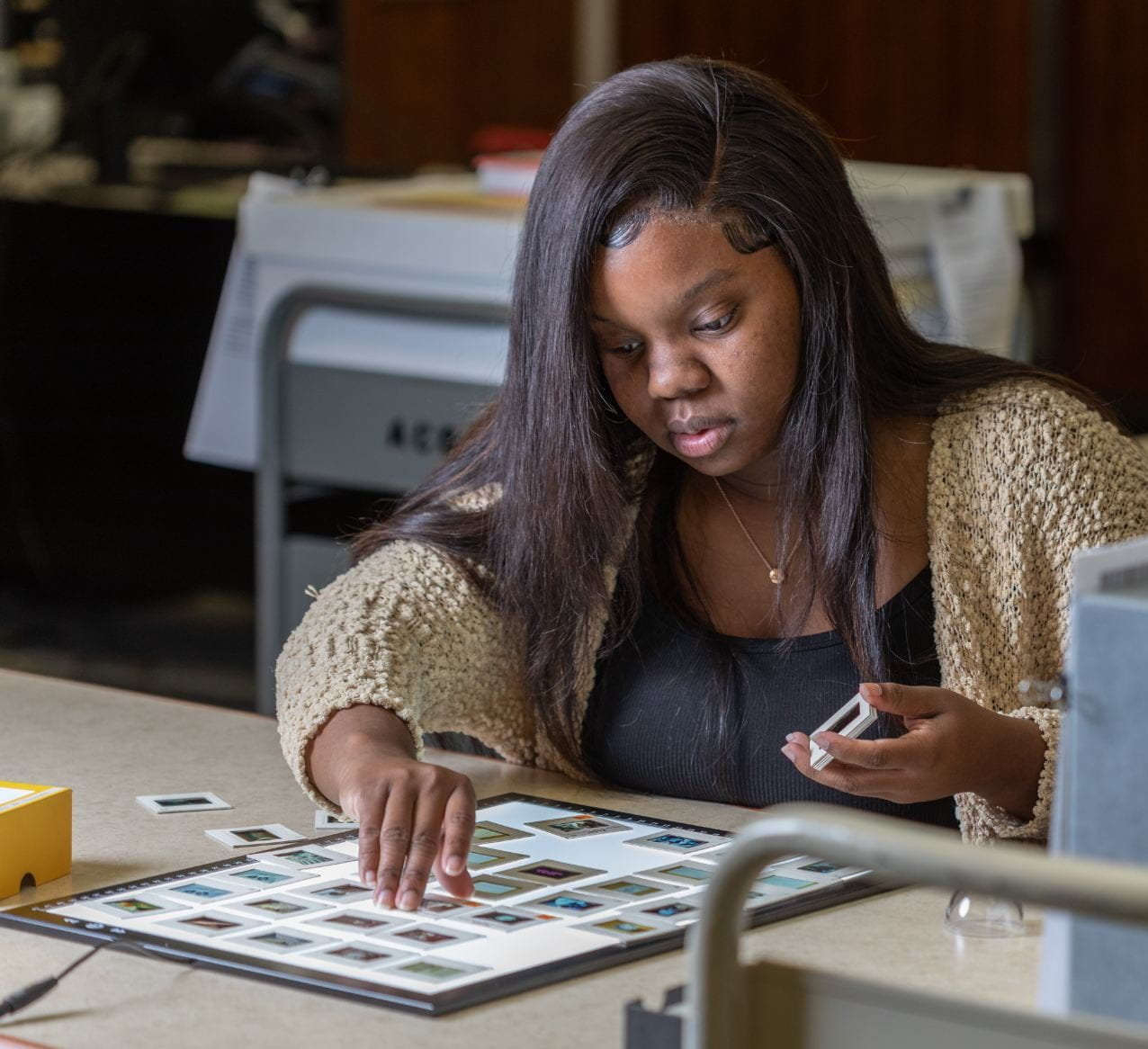 Nastajae Alderson is a fourth-year Path Scholar studying English education. Helped by Honors Director of Career Innovation Louise Hancox, Nastajae has completed internships with Arkansas Folk and Traditional Arts (AFTA) and the University of Arkansas Medical School (UAMS) that sought to further the study of those neglected by both history and healthcare. With her research, she found a passion for telling the stories that surround us yet are forgotten.
Nastajae Alderson is a fourth-year Path Scholar studying English education. Helped by Honors Director of Career Innovation Louise Hancox, Nastajae has completed internships with Arkansas Folk and Traditional Arts (AFTA) and the University of Arkansas Medical School (UAMS) that sought to further the study of those neglected by both history and healthcare. With her research, she found a passion for telling the stories that surround us yet are forgotten.
Question: How did you get involved with Arkansas Folk and Traditional Arts?
Answer: I got involved in AFTA through Virginia Siegel, the head of AFTA here in the library. Dr. Louise Hancox put us in contact and [Virginia] talked to them about some of the things that I was interested in. One of them, of course, was doing a project connected to my hometown of Huttig in some way. Since they don’t have much in special collections, she suggested doing oral interviews.
I did have some help from Virginia before I actually went into interviewing on my own. We had a few Zoom sessions before the interviews because everything was completely remote at the time. She taught me how to set up the recorder, things to say at the beginning and end of the interviews, and how to avoid yes/no questions to get the interviews to flow more easily.
Question: Did you learn anything during these interviews that made you see Huttig in a different light?
Answer: One thing that I did learn that kind of took me aback was when I was talking to one of our oldest members, and she was saying she wasn’t allowed to go to school after a certain point. During her time, schooling was only provided up until ninth grade for black students in town. The high school wasn’t integrated, and, after 9th grade, she started working as a clothes washer and seamstress. And, she still loved the town, regardless of what she went through. It was stunning because I was sad for her and knowing how she had to grow up also made me feel more appreciative of my childhood.
Question: How did that experience lead to your work studying racial health disparities with UAMS?
Answer: When I was doing my oral interviews, a person said they were born in a hospital or location that was outside of town because there wasn’t anywhere open to Blacks in town. That made me interested in midwifery, but it was already kind of late into my project with AFTA. Dr. Hancox helped me get involved with UAMS, saying that it would be good to further my research skills and my knowledge of medical history. She connected me to Jeffrey Kamykowski at UAMS, and we got the position going. Jeffrey and I would meet once a week, and he would give me either a list of names or a special topic that they didn’t have info on. I’d go through Special Collections to find correspondence, photographs, microfilm, etc. It was a challenge because going into it we would be looking for information on specific persons of color and would only have a name and no other info. But if we looked for, say, a white nurse in the same department, we would have a whole paper trail.
 Question: How has this experience with UAMS changed the way you react to current events, especially in light of the recent Supreme Court decisions?
Question: How has this experience with UAMS changed the way you react to current events, especially in light of the recent Supreme Court decisions?
Answer: I would say that it didn’t surprise me because people of any type of racial minority have been dealing with things like this already. Minorities have the most issues with birth and health care, and now that’s being extended to all women. It hurts my heart because it feels like we’re going in a circle back to the time I researched.
Question: How will these experiences affect your post-college plans?
Answer: All of these experiences that I’ve had are making me see the world in a new light. I want to go into the teaching profession, and I even imagine my classroom at this point. I haven’t even graduated yet, but I like the thought of having little-known historical figures on my walls. Everyone knows about famous presidents and Martin Luther King and people like that. I want to talk about people who not many people know about and who haven’t had the voice to be seen as important.
